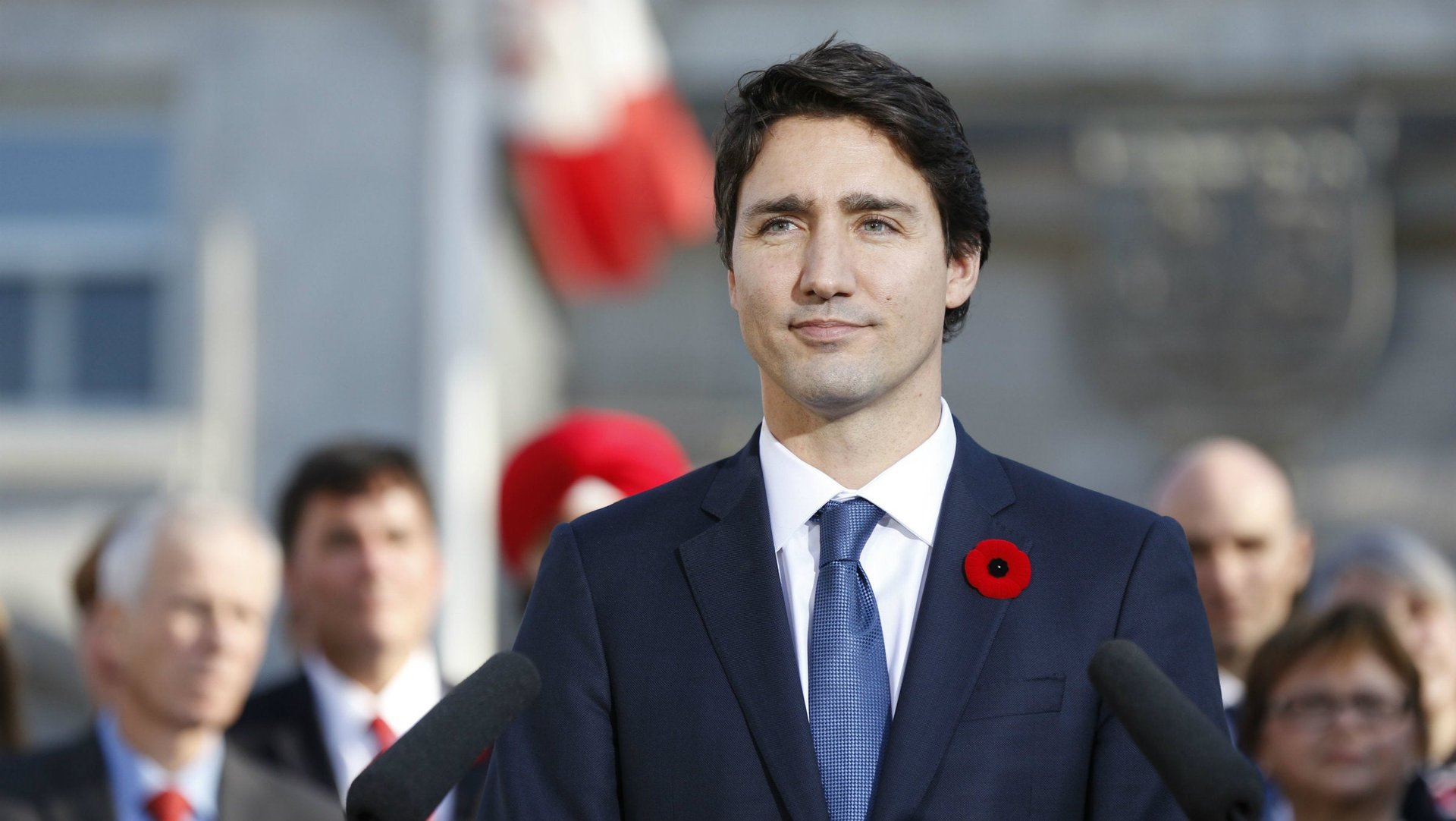The story behind Justin Trudeau and Donald Trump’s unlikely bromance
Could there be less likely bedfellows than Justin Trudeau, Prime Minister of Canada, and Donald Trump, president-elect of the United States?


Could there be less likely bedfellows than Justin Trudeau, Prime Minister of Canada, and Donald Trump, president-elect of the United States?
Since his landslide win just over a year ago, Trudeau has earned the respect of progressives the world over by championing inclusiveness, identifying as a feminist, aggressively resettling Syrian refugees, and pursuing an anti-austerity budget.
He’s the guy who pulls off soppy pink t-shirts, and snuggling pandas.
Trump, on the other hand, won the US election this week after promising to build a wall between the US and Mexico, exhibiting relentless sexism, pledging to ban Muslims or make American Muslims register in a national database, and issuing confusing, contradictory statements about government spending and debt.
Nevertheless, Trudeau’s message to Trump following his victory came swiftly, and was warmer than his fans might have liked.
In his public statement, Trudeau said that “Canada has no closer friend, partner, and ally than the United States,” and that Ottawa looked forward to working ”very closely with President-elect Trump, his administration, and with the United States Congress in the years ahead, including on issues such as trade, investment, and international peace and security.”
He concluded: “The relationship between our two countries serves as a model for the world. Our shared values, deep cultural ties, and strong integrated economies will continue to provide the basis for advancing our strong and prosperous partnership.”
Trudeau also tweeted:
Today, Trudeau said that he was ready to renegotiate NAFTA and invited Trump to meet with him to discuss areas of mutual interest. (There’s been no word on Trump’s response.)
Despite their vastly different approaches to politics, this actually all makes sense. Canada’s goods and services trade with the US reached more than $650 billion in 2015, and the US dominates Canada’s foreign trade—bigly. Trudeau will inevitably need to work closely with the US, as he explained in interviews this morning, to safeguard Canada’s economic health.
Trudeau has always supported TransCanada’s controversial Keystone XL pipeline project, which the Obama administration blocked. Real estate in Canada will likely look attractive to US buyers. And Canada’s tech sector is ready to seize on the US talent escaping Trump and his likely crackdown on work visas.
Canada is staring down a shortage of 200,000 highly-skilled workers expected by 2020. Highly skilled immigrants living in the US may find themselves homeless if Trump make goods on his promise to “end forever the use of the H-1B as a cheap labour program, and institute an absolute requirement to hire American workers first for every visa and immigration program.” (Silicon Valley relies on H-1Bs to recruit overseas talent.) Trump has also vowed to make it difficult for foreigners to get green cards and may put a freeze on issuing them altogether. Canadian companies know this, and were already attempting to woo immigrants living in fear of Trump before he won.
Meanwhile, Trudeau has thrown his weight behind recruiting highly-skilled workers to move to Canada.
No matter how economically sound a Trudeau-Trump alliance may be, the Canadians who elected him aren’t likely to warm to Trump’s politics anytime anytime soon.